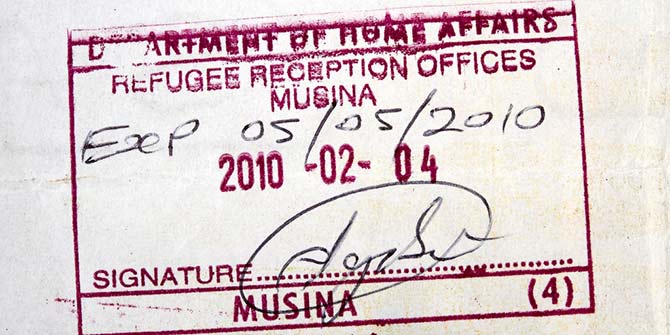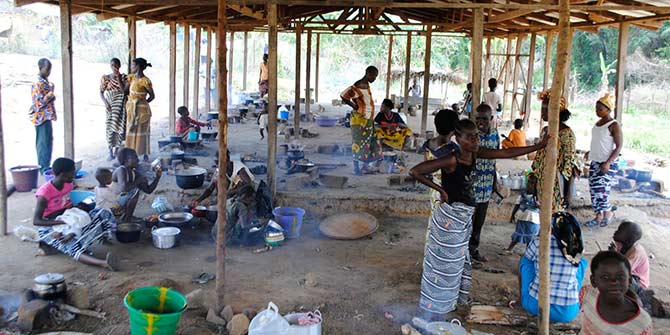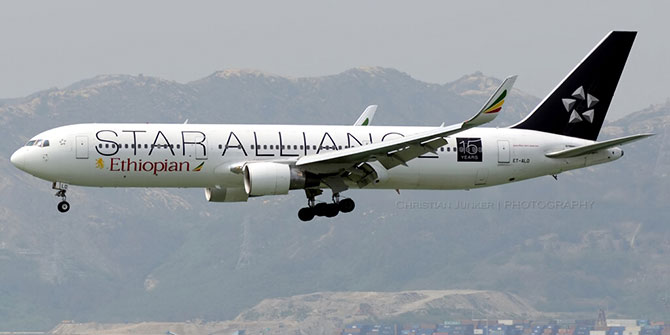Robtel Neajai Pailey calls on leaders in New York to move beyond rhetorical statements and pledges about how to ‘protect’ nameless, faceless people on the move.
On 19 and 20 September 2016 in New York, the United Nations General Assembly and US president Barack Obama host back-to-back high-level summits to address large movements of refugees and migrants.
On the surface, the meetings appear laudable, but goodwill postures by people in positions of power are simply not enough.
What is needed, instead, is honest reflection about how complicit some countries and institutions are in creating political and economic conditions that fuel conflict and breed deprivation.
The situation of undocumented migrants is particularly concerning.

Contrary to the dehumanising rhetoric that punctuates current debates about mobility across the Mediterranean, the Sahel and the US–Mexico border, what awaits most undocumented migrants is not ‘heaven on earth’ but rather an endless checklist of unmet primal desires:
Want of education.
Want of work.
Want of healthcare.
Want of travel.
Want of rights and freedoms.
Want of recognition and protection.
Want of the intimacies upon which human relationships are built and sustained.
According to the International Organisation for Migration (IOM), in 2010 alone 10 to 15 percent of the 214 million migrants across the globe were undocumented. More recent estimates show that at least 50 million roam the earth. While the European Union estimated that it hosted 547,335 irregular migrants in 2014, the US, with its more robust documentation, recorded 11.3 million ‘unauthorised’ migrants in 2014 out of a total immigrant population of 40 million.
Most undocumented migrants struggle over whether to conceal or reveal too much of themselves. Both actions involve calculated risks. Even the prefixes we use to describe those without legal status point to their presumed ‘abnormality’: irregular, illegal, unauthorised.
But there’s another realm of undocumented existence that doesn’t get captured in mainstream discussions about migration. It’s the often-untold stories of some of the 82 million people who migrate, not to the so-called Global North, but to countries within their regions of origin, as is the case for intra-Africa migration.
It’s the often-untold stories of women, men and children who leave strong social networks behind and forge new ones through sheer grit.
It’s the often-untold stories of highly educated adults who take on blue-collar jobs abroad, only to send half their salaries back home.
It’s the often-untold stories of children who adapt to new languages, mores and folkways with breakneck speed.
It’s the often-untold stories of those who physically reside in one place, while maintaining strong transnational ties to another.
A migrant all my life, I hope leaders in New York in September 2016 will move beyond rhetorical statements and pledges about how to ‘protect’ nameless, faceless people on the move. Truth is, we don’t need to be ‘saved’. Simply recognise us as human beings and institute policies and practices that affirm our humanity.
There must be recognition at the meetings in New York—and the countless others that will surely follow—that despite their vulnerabilities to geopolitical grandstanding, migrants, refugees, asylum seekers—and all those who fall between the cracks and crevices of these labels—are not helpless and hapless.
Rather, they represent complex, dignified and resilient human stories.
What is required is a plan of action to change the conditions that push people to move when they do not want to, and a commitment to facilitating safe and impartial movement when it is desirable.
As someone who studies migrants, their motivations, yearnings, fears, triumphs and tribulations, I hope these gatherings will be less about talk and more about concrete action.
This piece was originally published on the International Migration Institute (IMI) blog.
Robtel Neajai Pailey is a Liberian academic, activist and author of the anti-corruption children’s book, Gbagba. She currently serves as a senior researcher at the University of Oxford’s International Migration Institute (IMI), as well as a senior migration consultant for the United Nations Economic Commission for Africa (UNECA).
The views expressed in this post are those of the authors and in no way reflect those of the Africa at LSE blog or the London School of Economics and Political Science.





